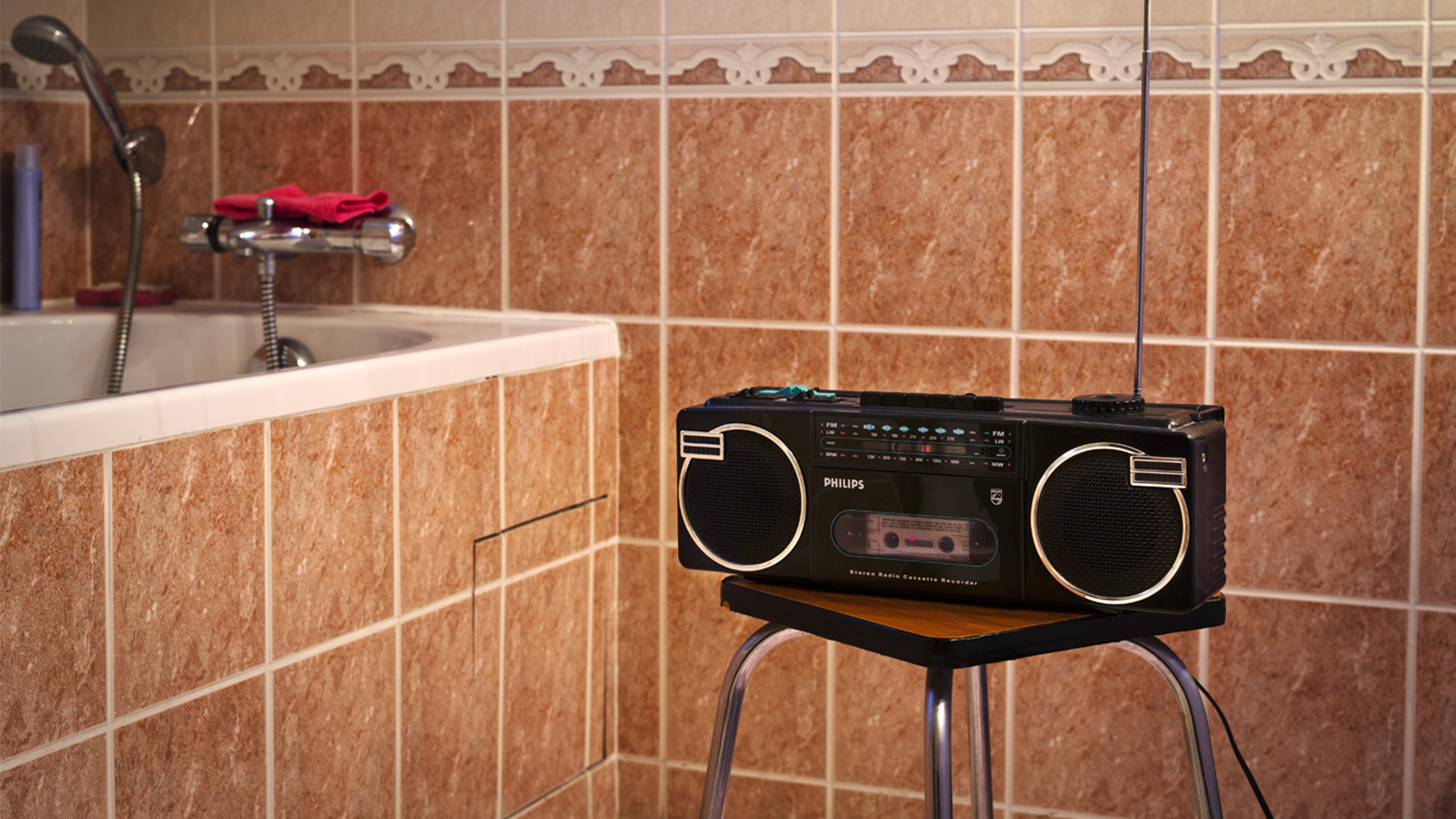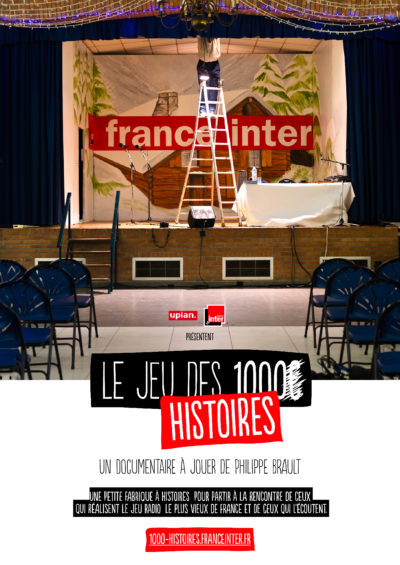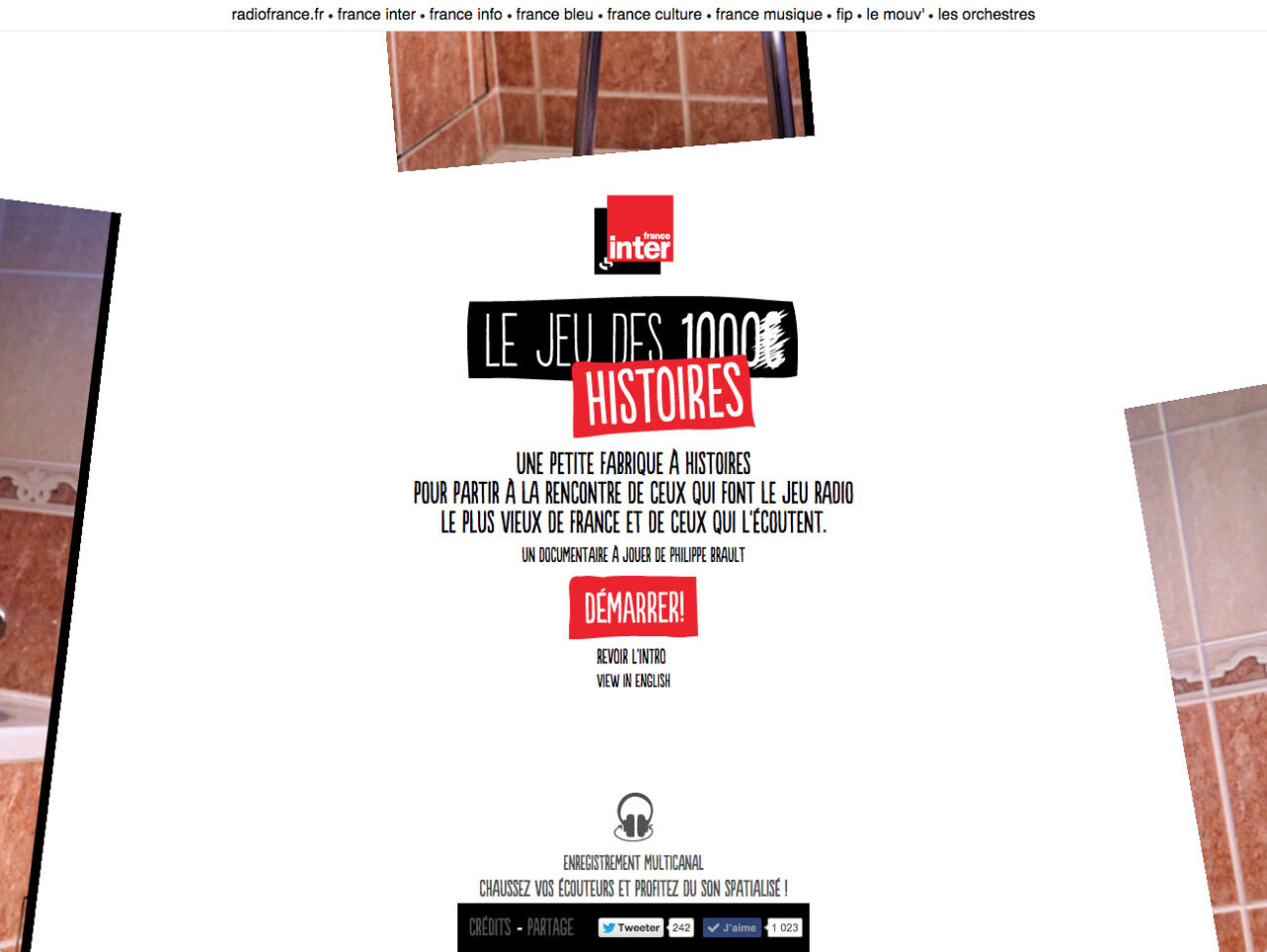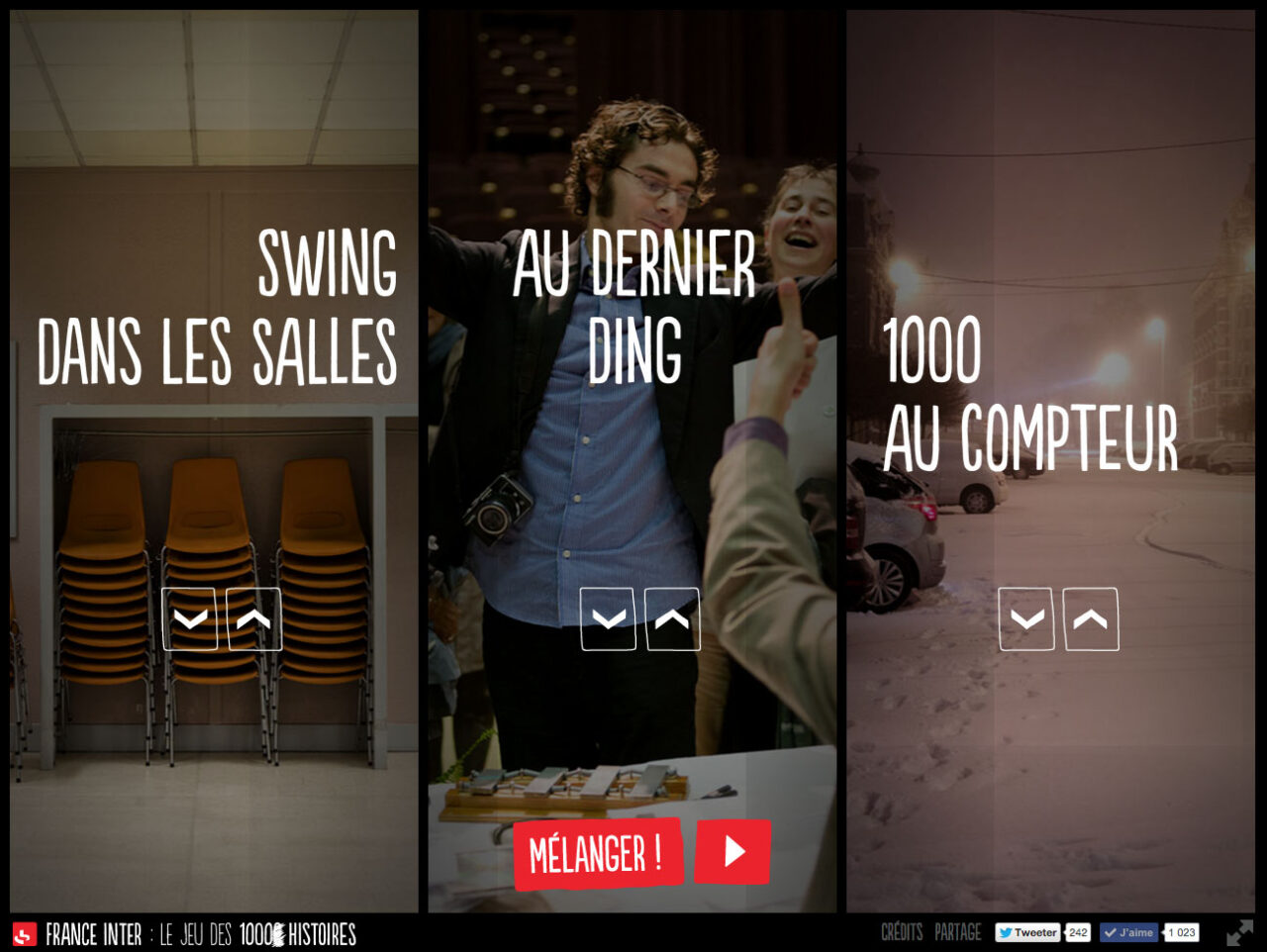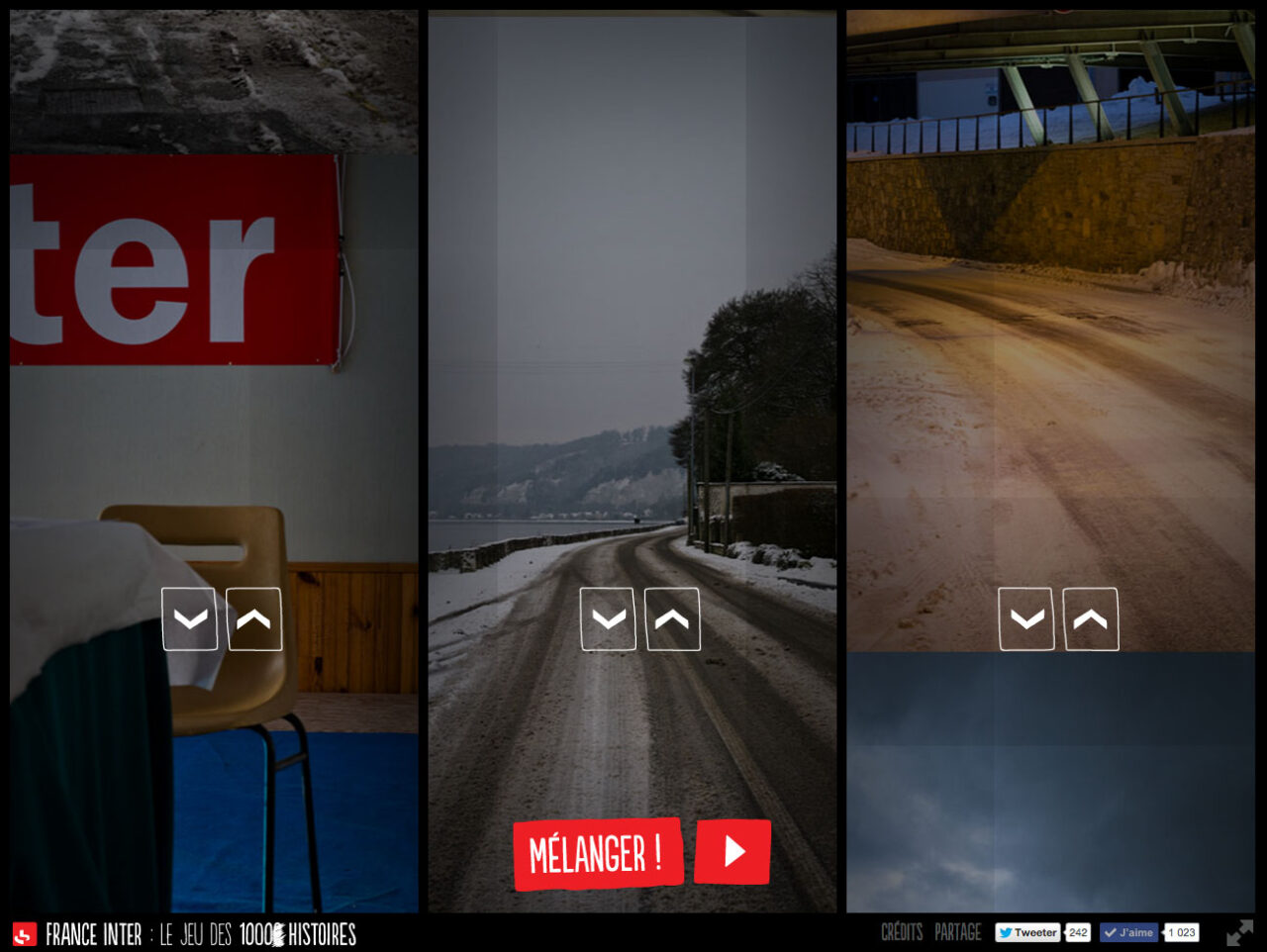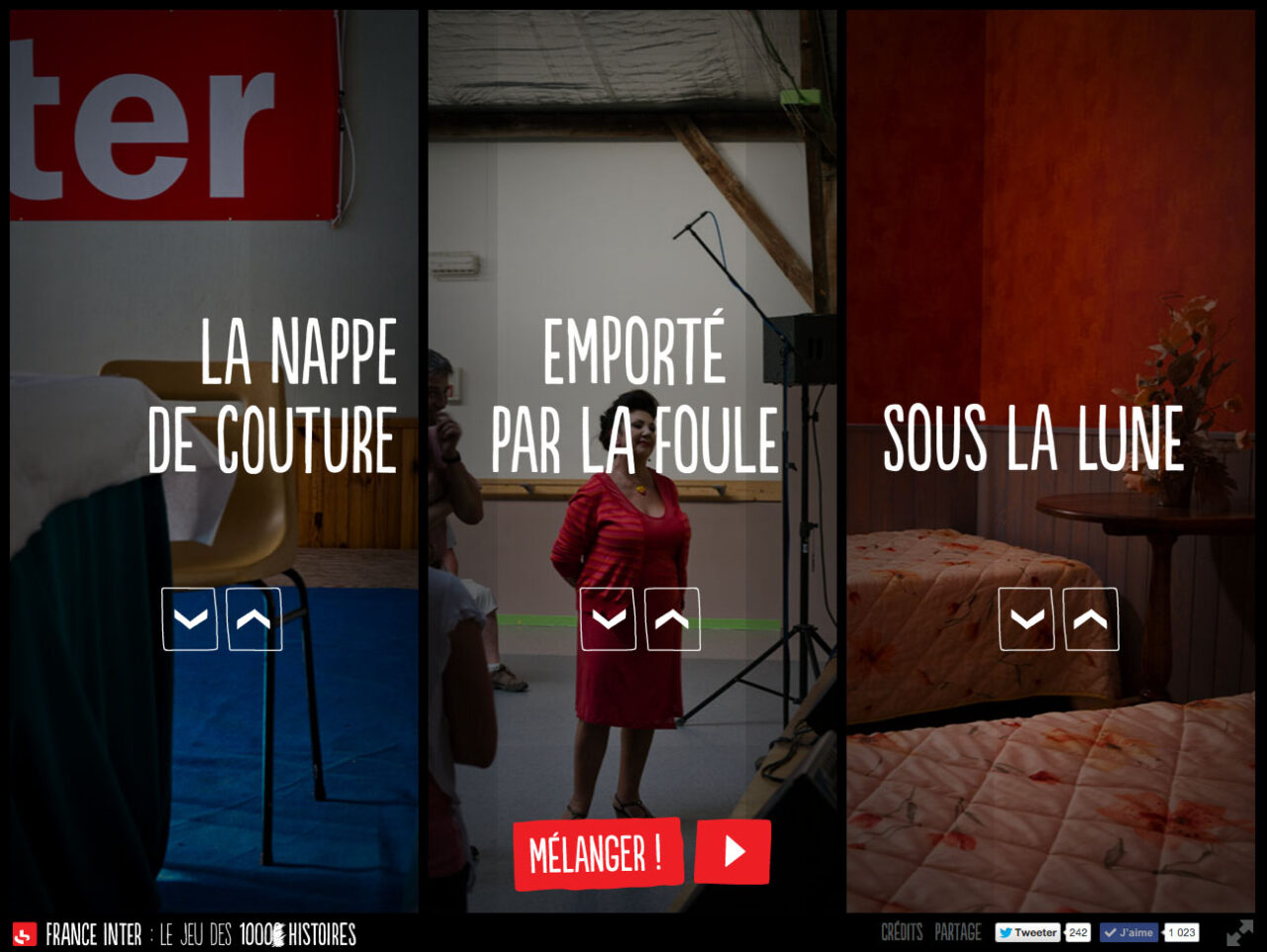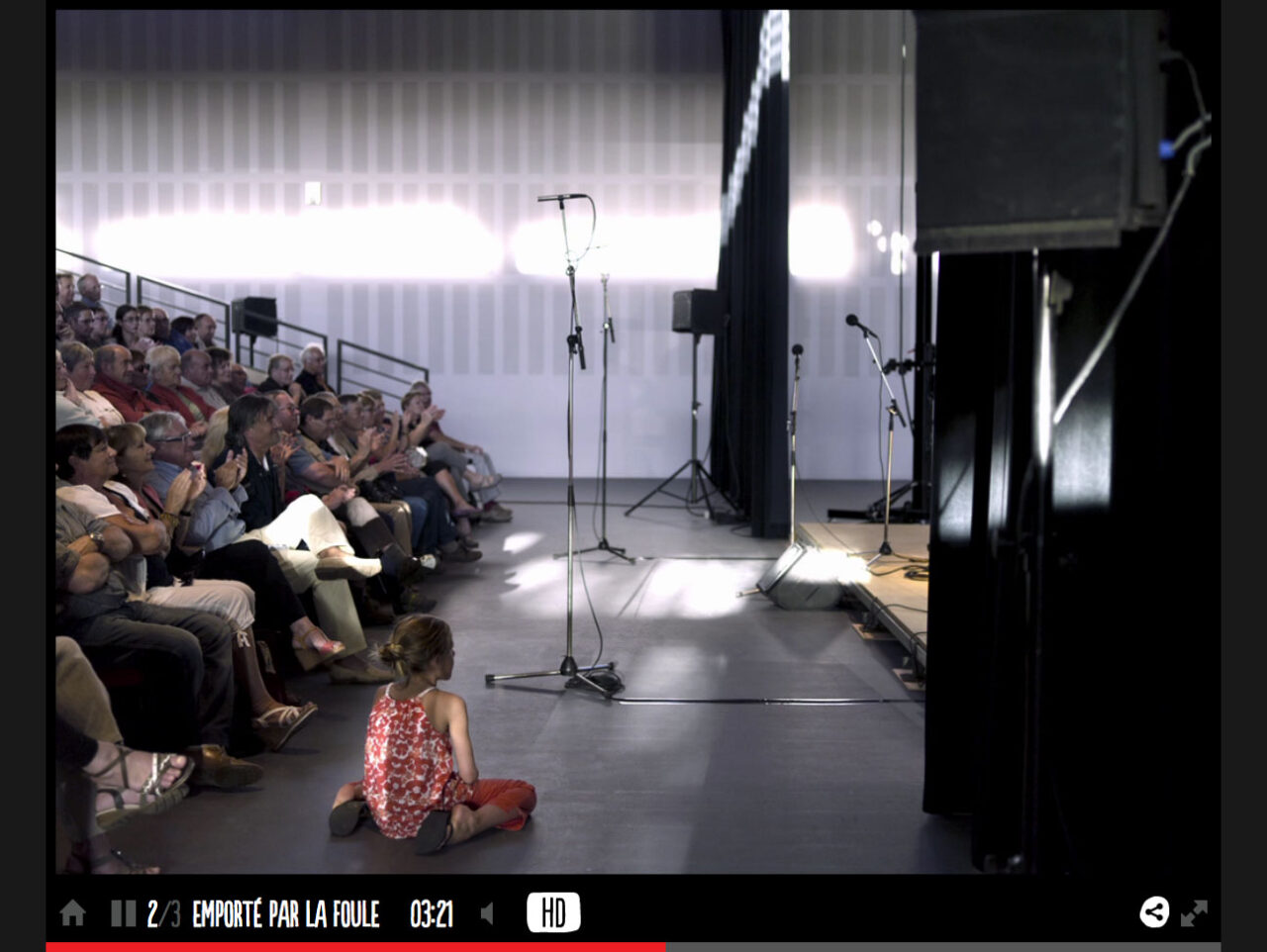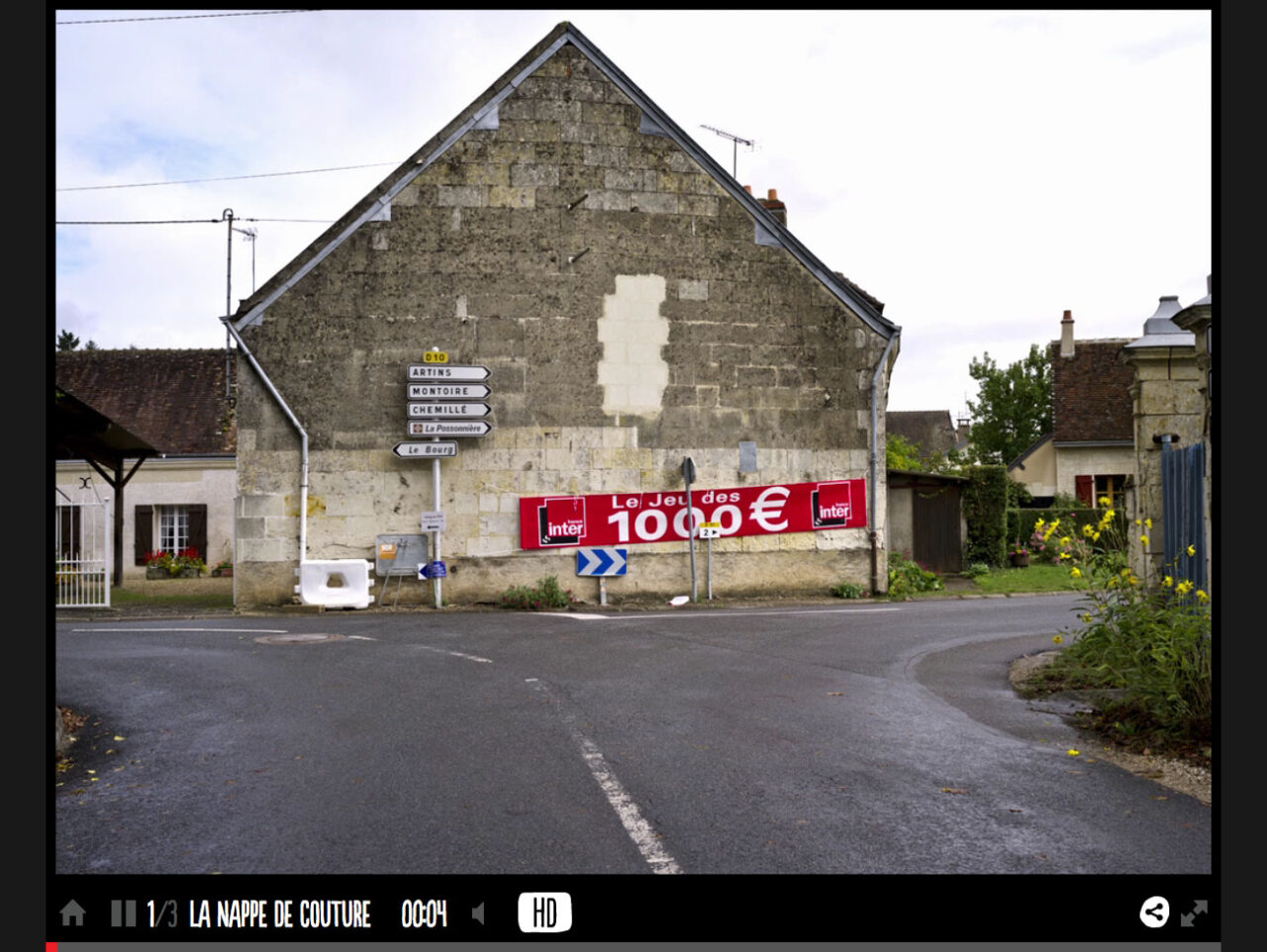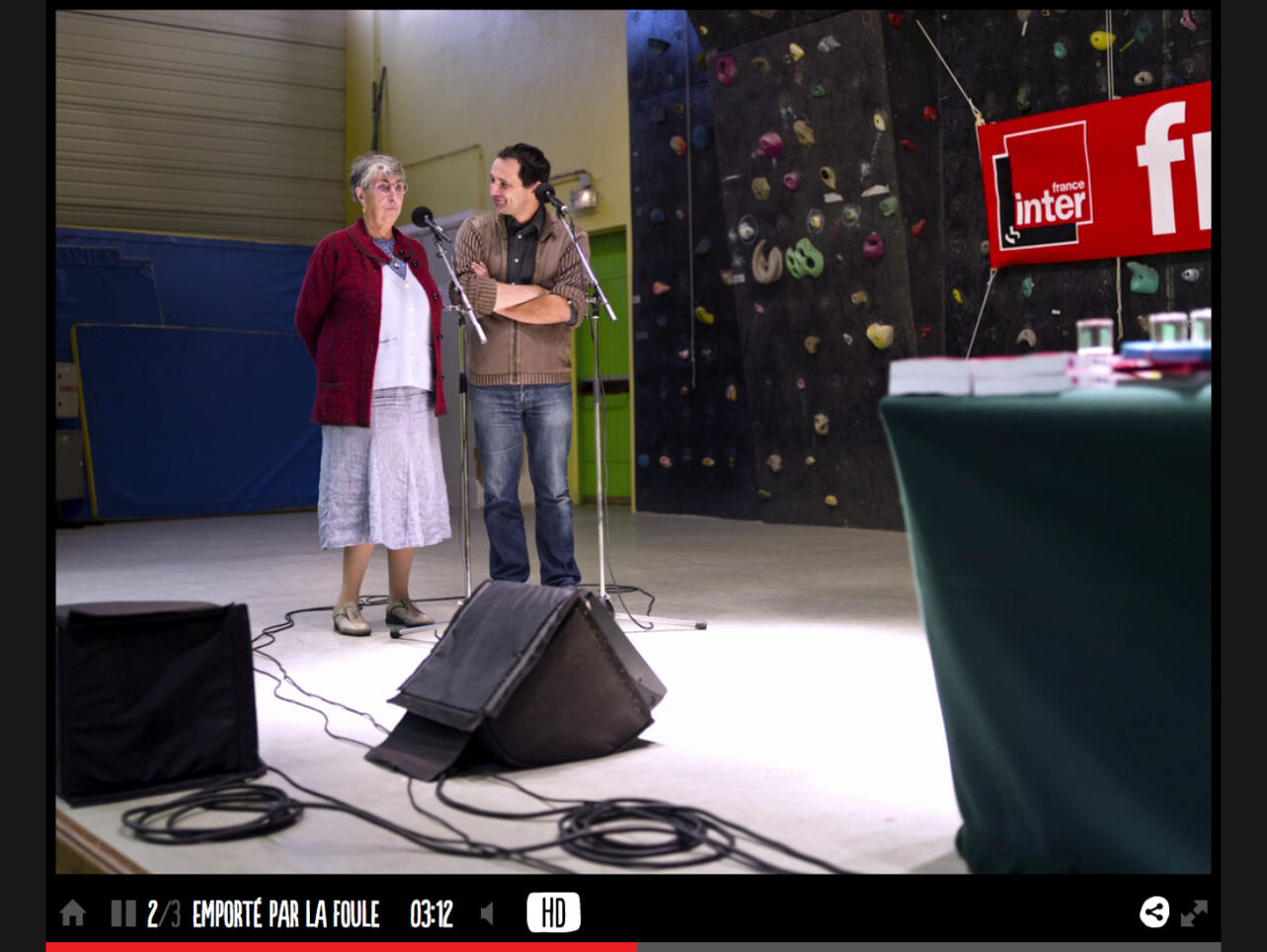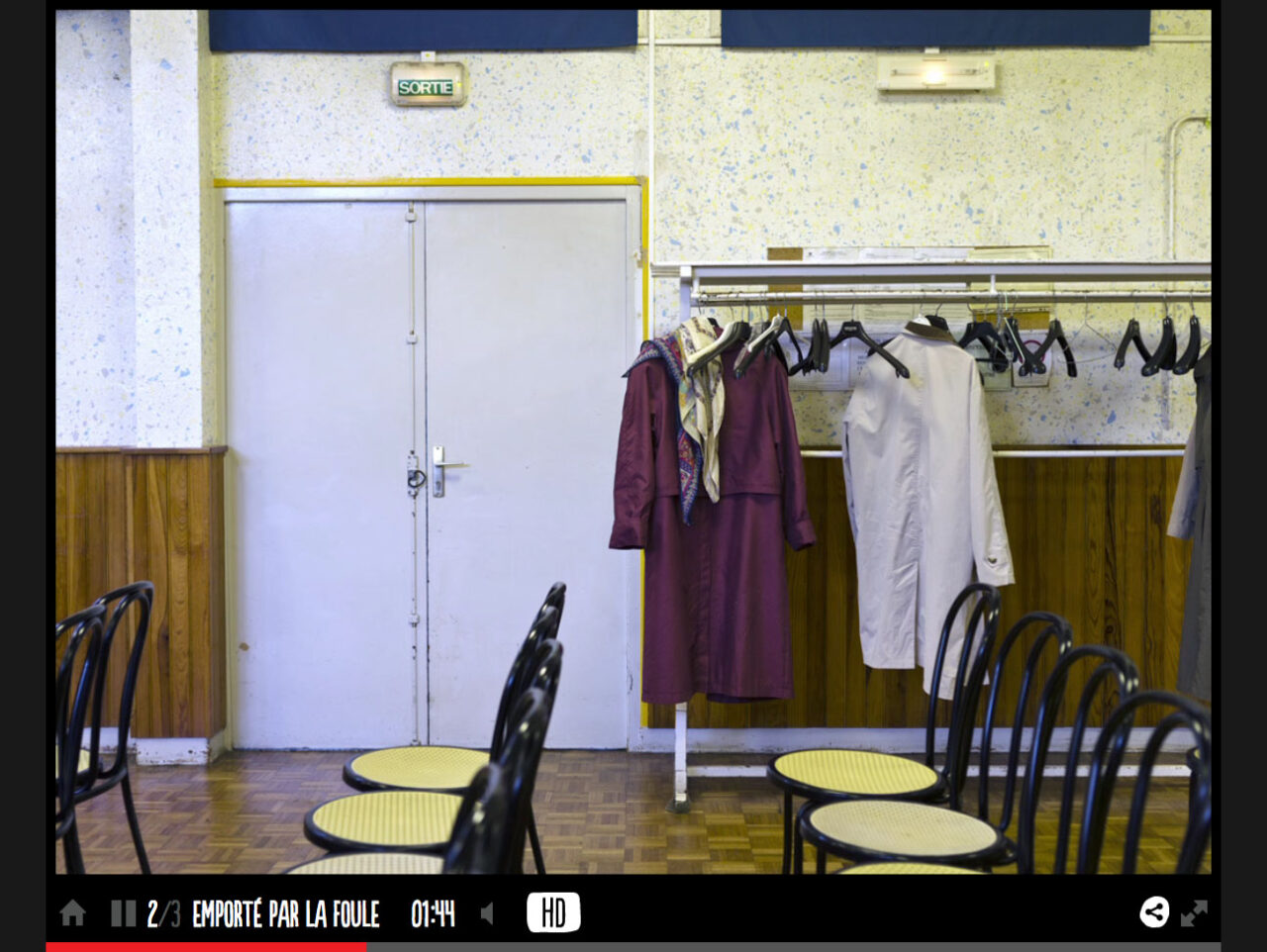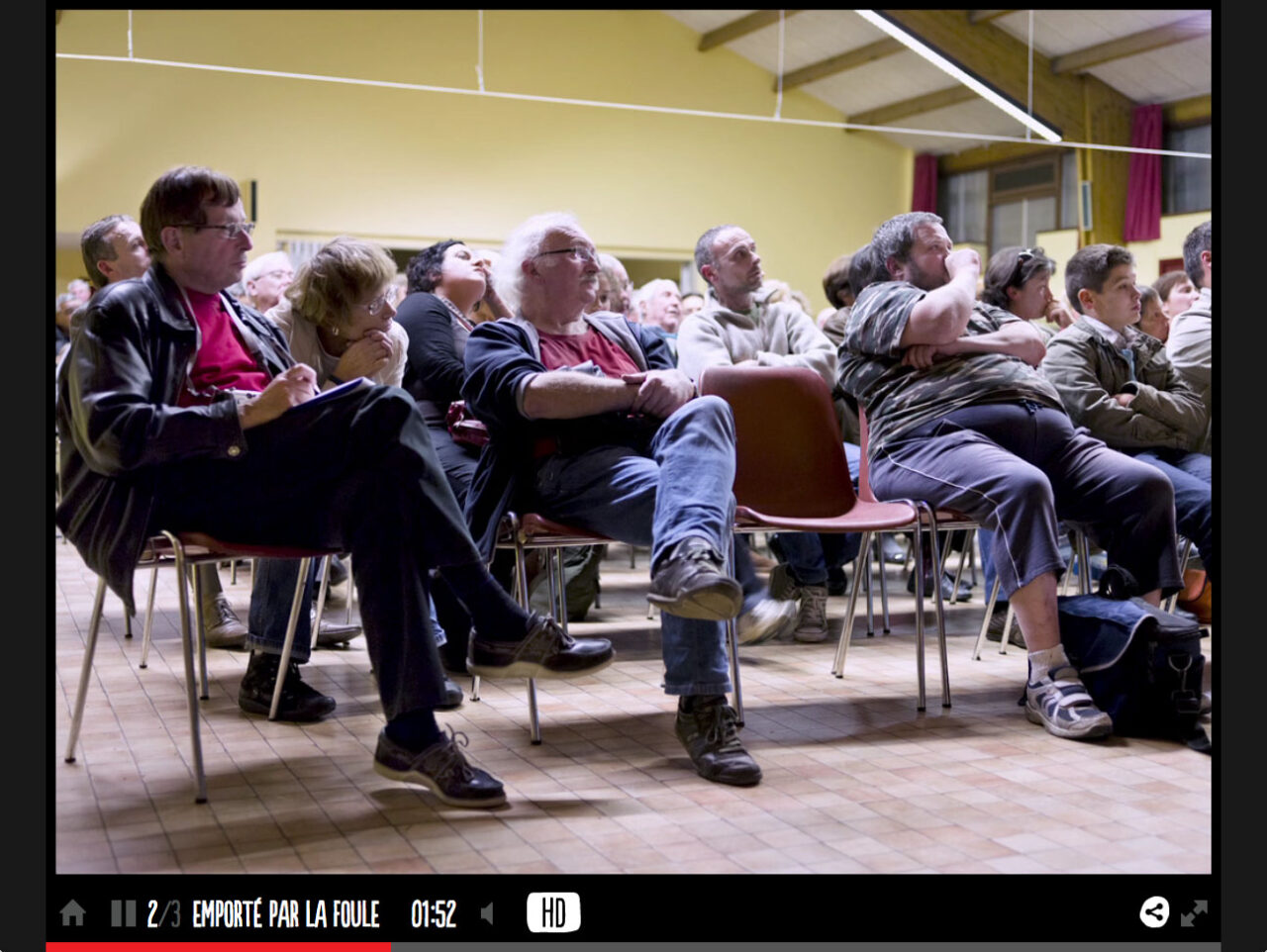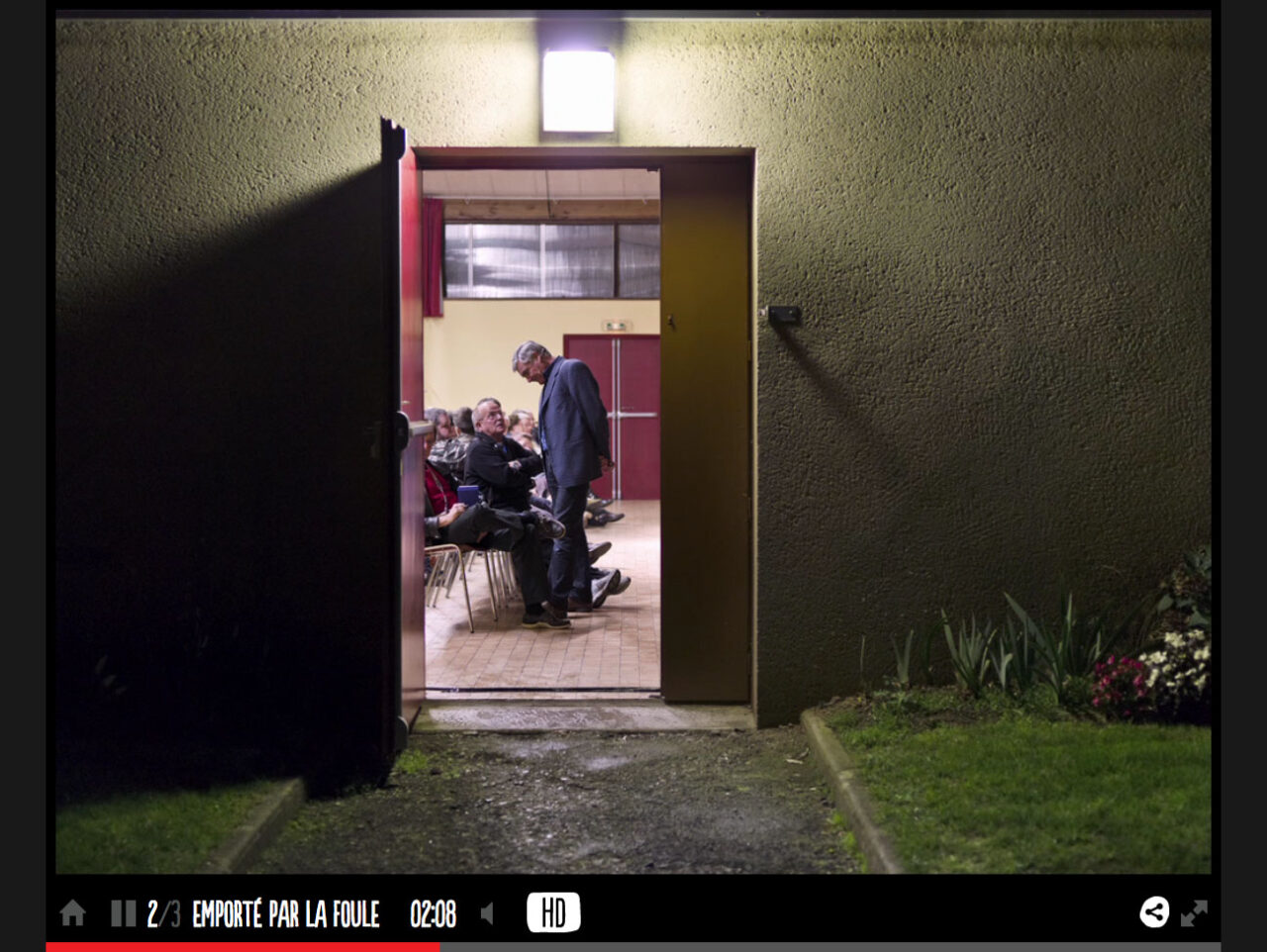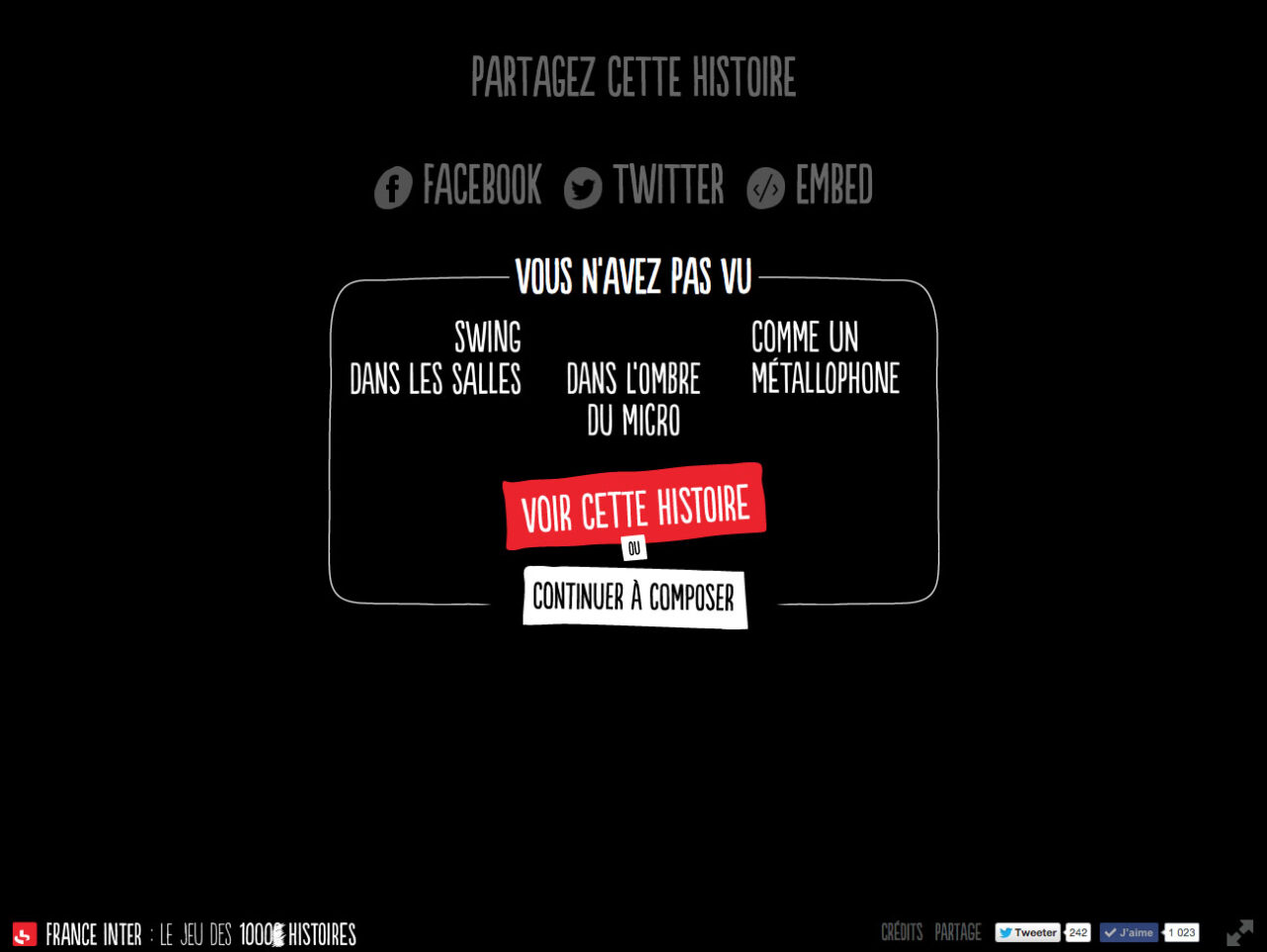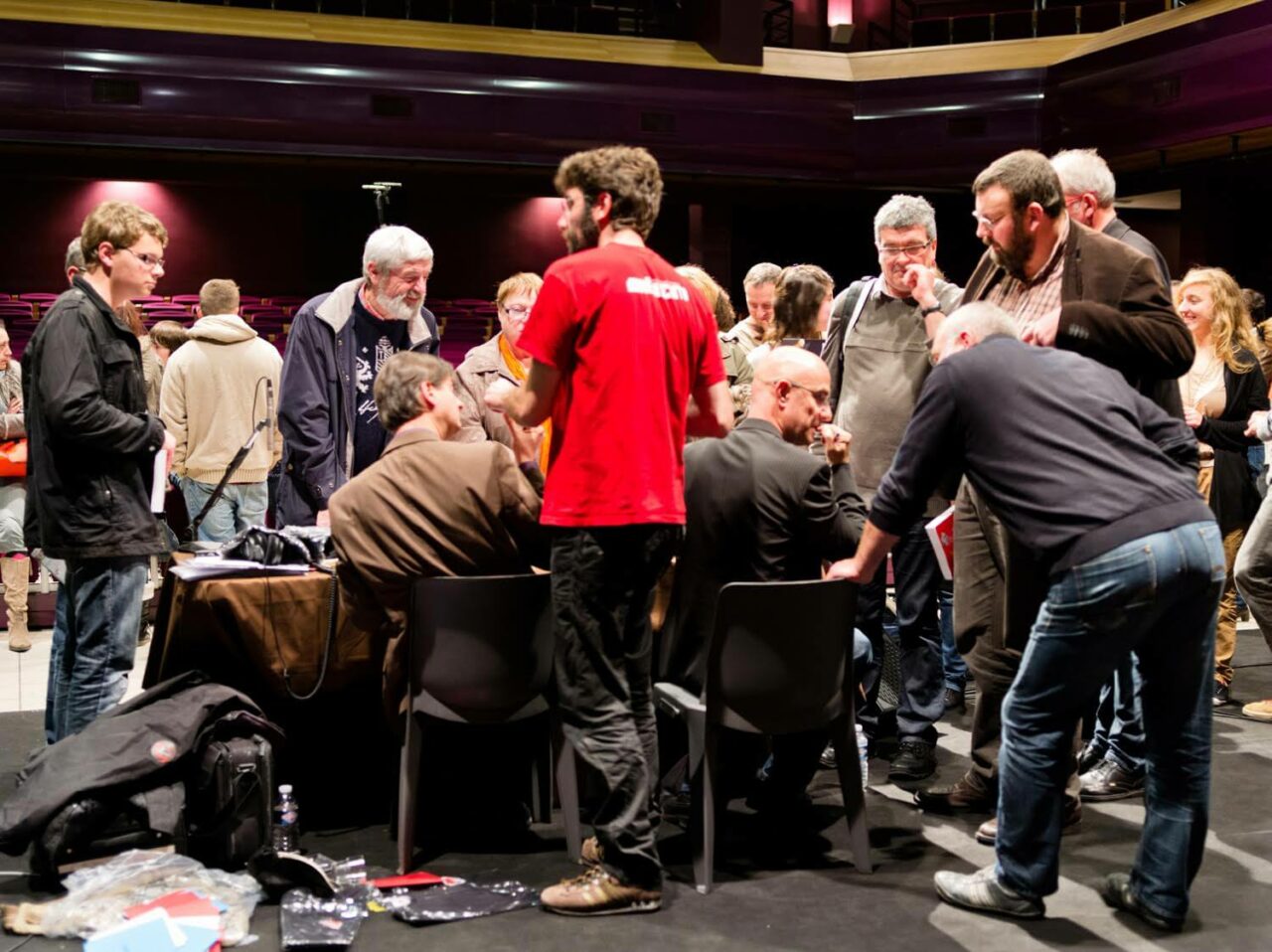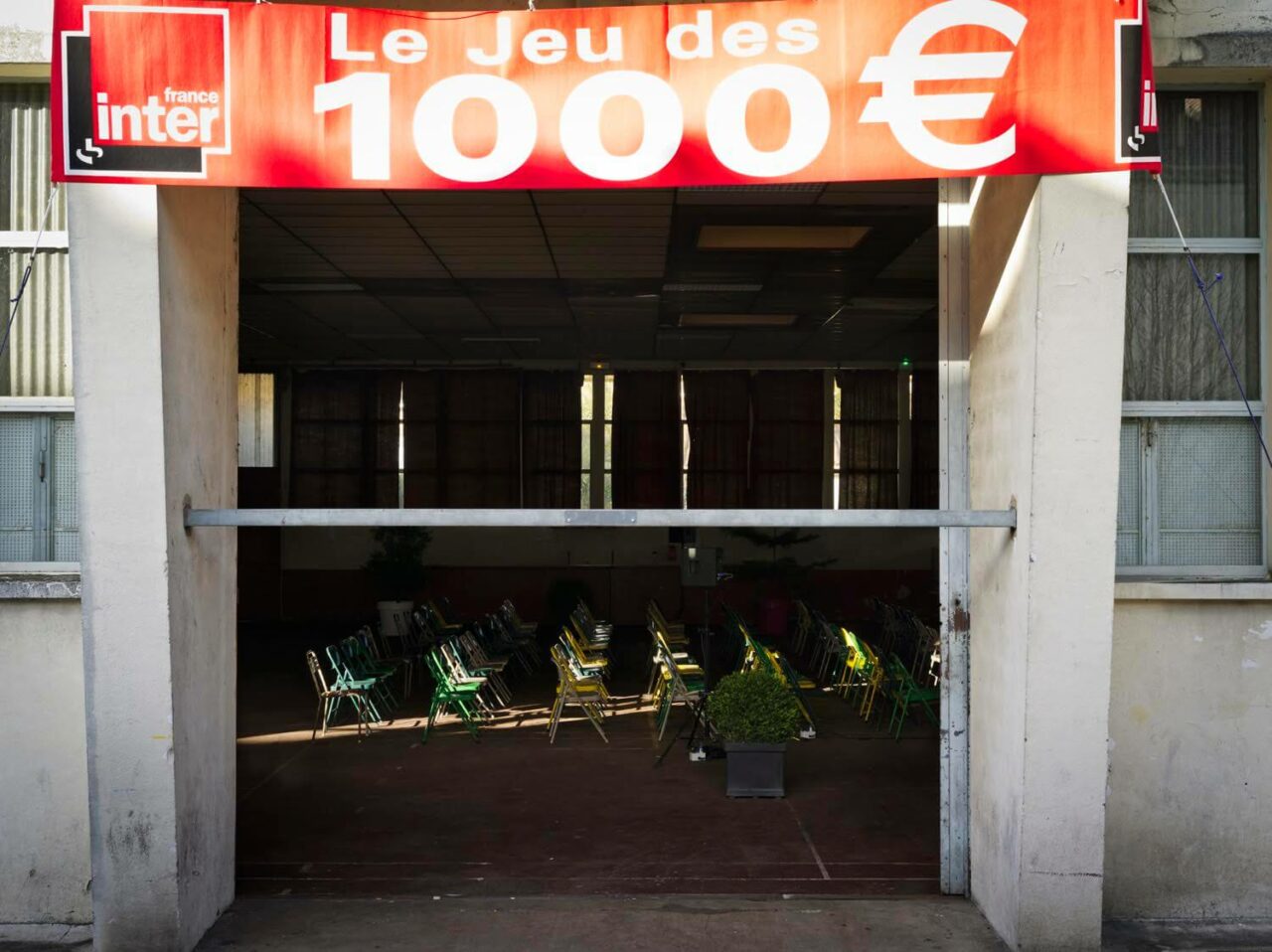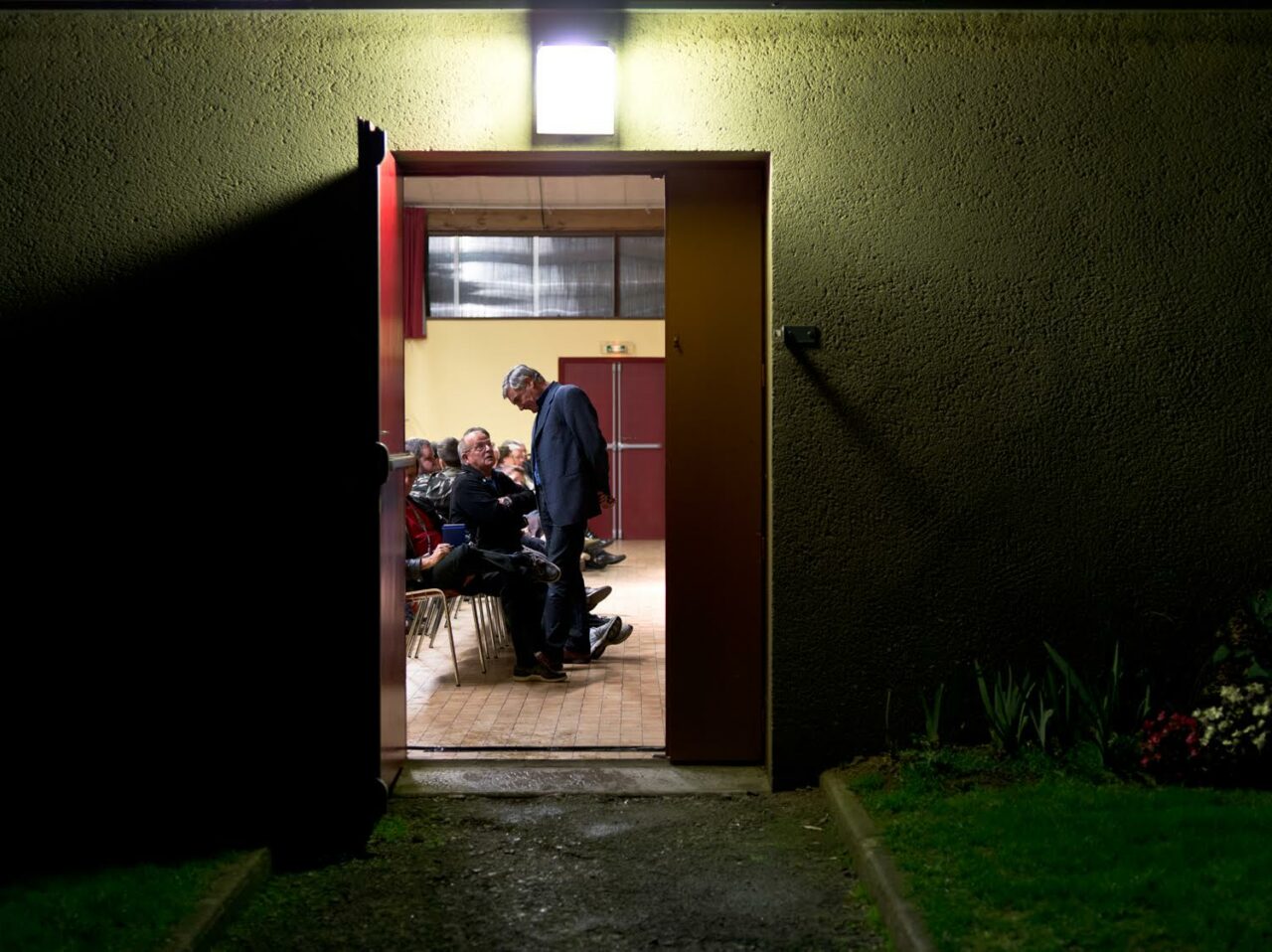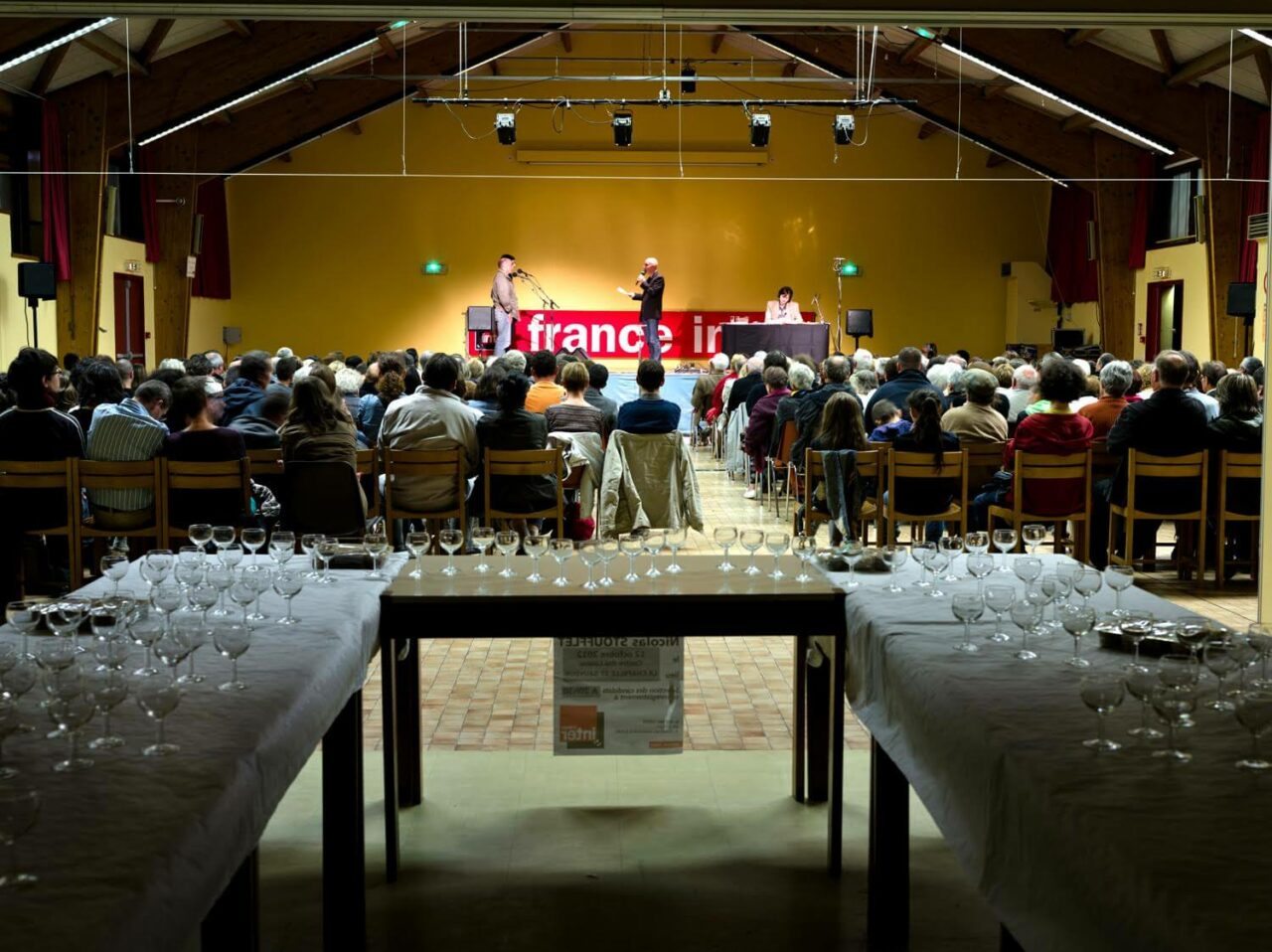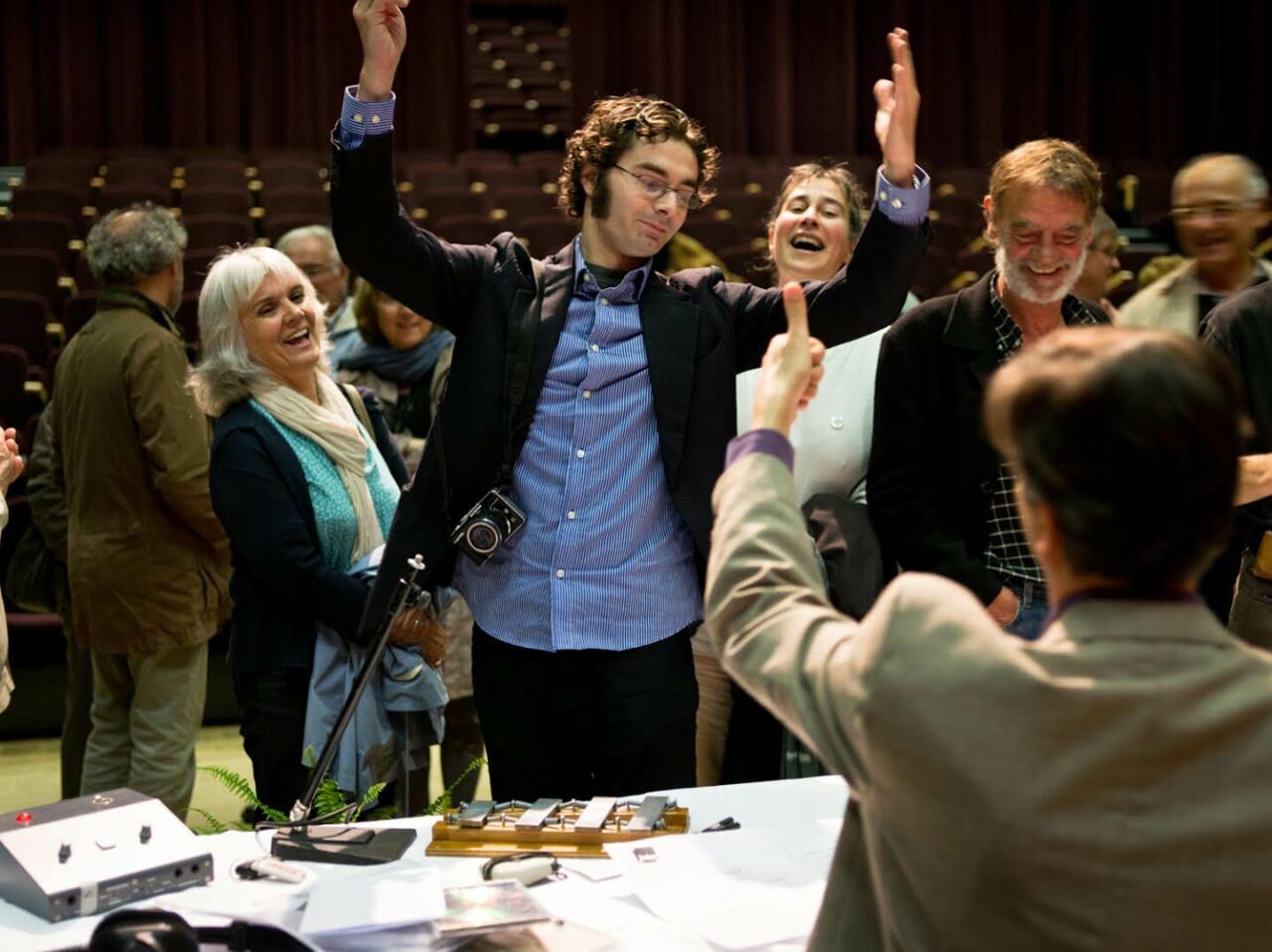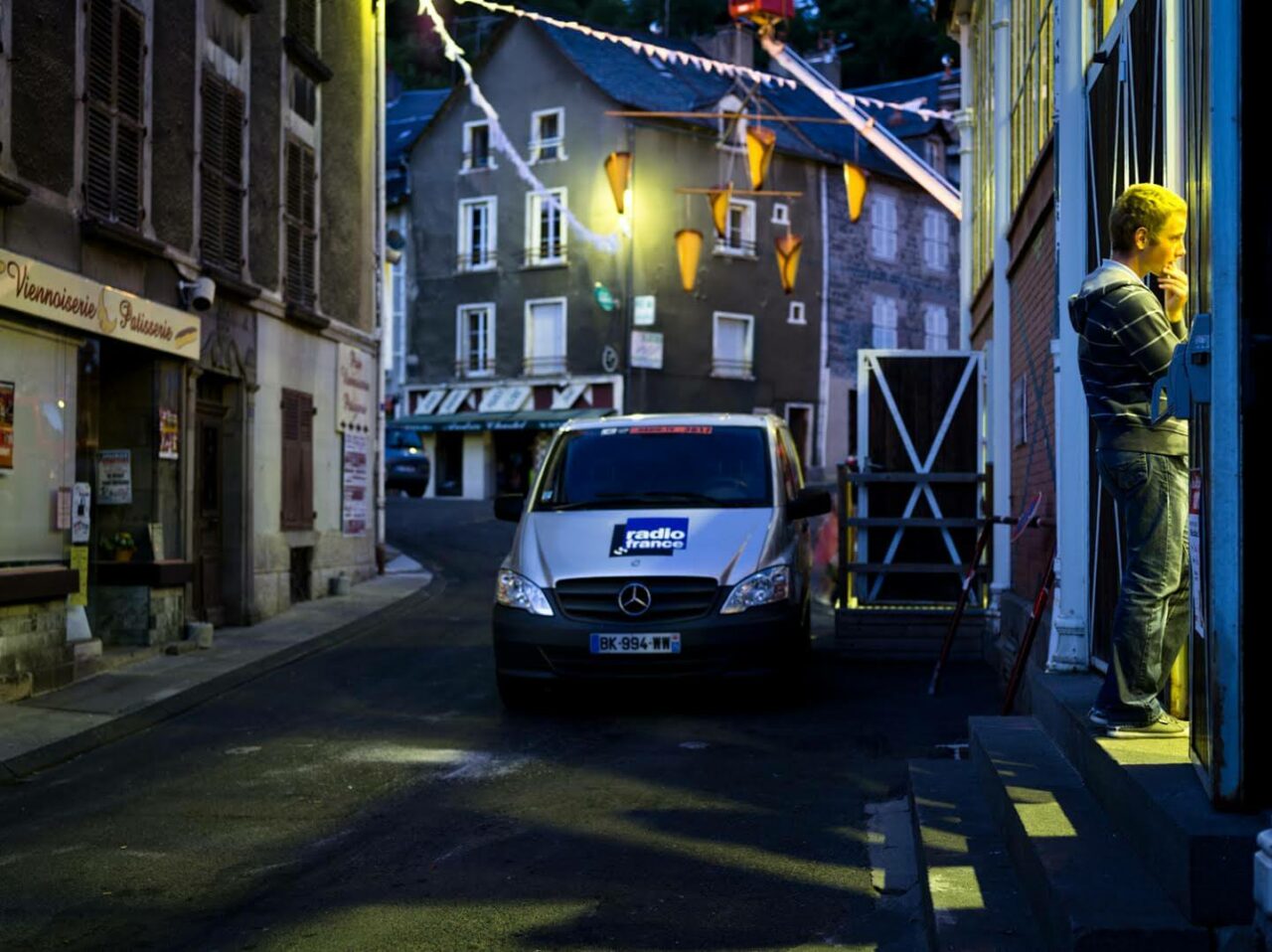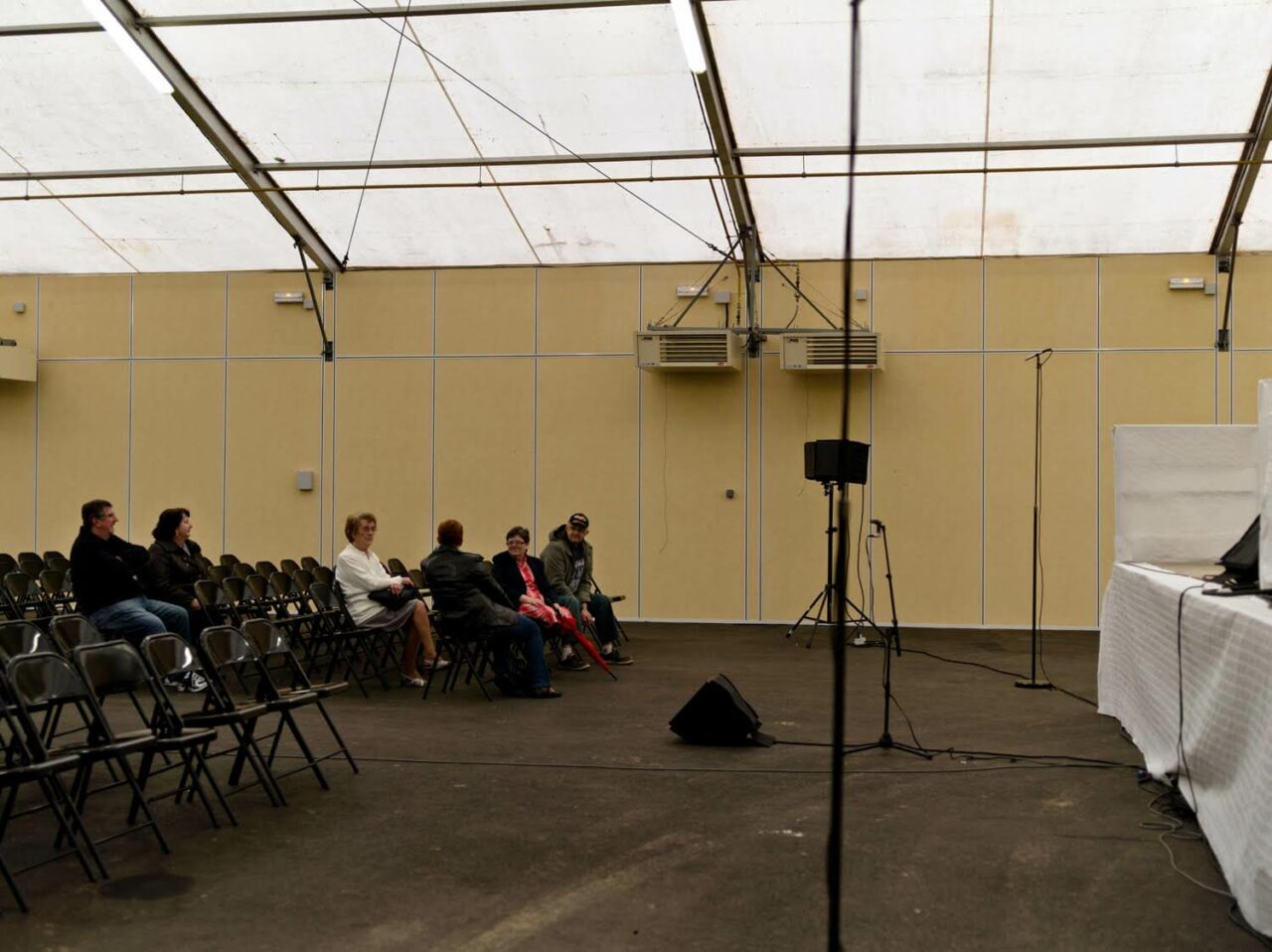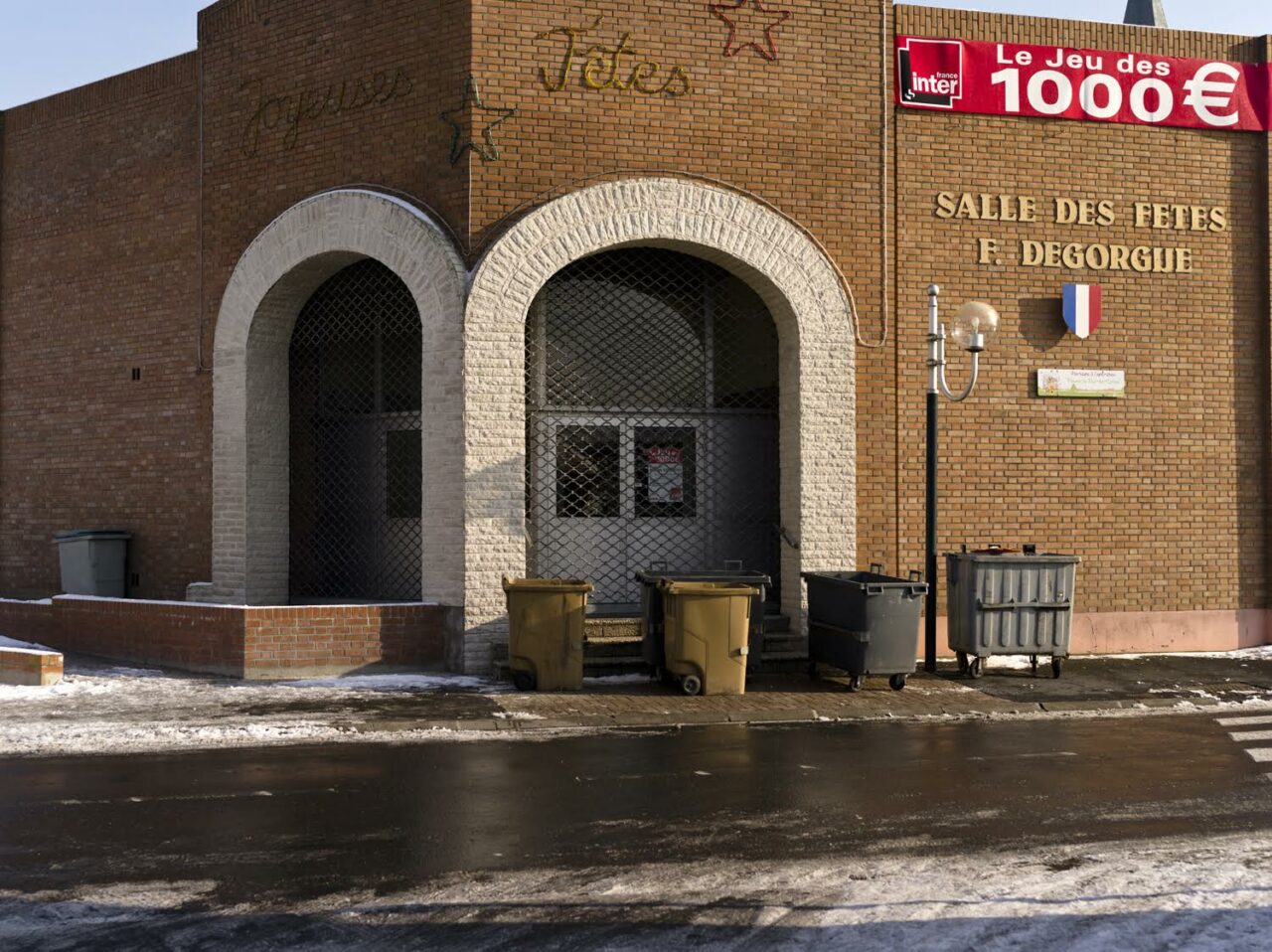The Jeu des 1000 histoires, an interactive portrait of contemporary France, is based on The Jeu des 1000 euros game show. The documentary game humorously depicts the daily life of the famous show hosted by Nicolas Stoufflet and produced by Yann Pailleret.
A little story factory, where a game of chance allows the viewers to get to know the people behind the Jeu des 1000 euros, its audience, and its participants.
All told, a 75-minute program with 1000 possibilities.
A storytelling machine
Here, users have a direct impact on the narrative of the stories they watch. But only if they want to, of course! Make up a story by stringing together 3 sequences consisting of photos, videos, and sounds, or let chance do it for you. Then do it again… and again… Little habits, kind words, panic attacks, occasionally incongruous situations and reactions. Every day, a new setting for the same old song and dance: logistics, technicians, audience expectations, the cities and towns that come to life to the sound of the glockenspiel, correct answers, winners, and losers…
Little by little, uncover the secret life of a well-oiled machine.
Every story is made up of 3 parts, a “beginning”, a “middle”, and an “end”, for a total of 1000 possible permutations allowing you to create your very own 75-minute program.
Philippe Brault is a photographer and cinematographer, and Agence VU’ member. After working for many years as an assistant cameraman on documentaries and fiction films, in 1993 he turned to photography. His work has been published and exhibited worldwide. Prison Valley, which he co-directed in 2010 with David Dufresne, marked his return to the moving image. This web documentary on the Colorado prison industry, produced by Upian and Arte, received numerous international awards (World Press Photo multimedia contest, Prix Italia, Prix France 24-RFI, Grimme Online Award). Cameras loaded, Philippe followed in Nicolas Stoufflet and Yann Pailleret’s footsteps for nearly a year to complete Le Jeu des 1000 histoires.
A portrait of France as a whole
« il ne s’agissait pas de réaliser un portrait de la France en général, mais bien de celle que l’on peut observer au travers du Jeu » Alexandre Brachet
Alexandre Brachet: We wanted to get away from North America, where Prison Valley was shot and which featured prominently in Fort Mc Money [the documentary game by David Dufresne in which Philippe Brault, just like in Prison Valley, acted as DoP –Ed.]; a kind of post-human world where social issues lead to big questions about humanity… We wanted to get closer, to connect with people, in a way. And work on a project about France. We’d been thinking about it for a long time. At the same time, it wasn’t about drawing a portrait of France as a whole, it was a question of showing the France we see through this game, though Le jeu des 1000 euros. We tried to highlight the underlying humility in this radio show. It’s a far cry from the media circuses and television game shows that promise millions of euros, are patently voyeuristic and in which, clearly, aren’t even close to being about having fun. The Jeu des 1000 euros, on the other hand, a culture-based game with very low stakes, is all about enjoyment. I know it sounds like a cliché, but we really wanted to get to know the men and women that live in our country, and bring something tender and sweet to the film’s images.
« l’intimité était difficile à atteindre et nous ne voulions pas inventer ce qui n’existait pas » Philippe Brault
Philippe Brault: I went location scouting for four days on two different occasions, in June and July 2012. For the shoot, I followed host Nicolas Stoufflet and producer Yann Pailleret around, sticking very closely to their tour schedule. They always hit the road for a new season in late August, for about two weeks per month. I travelled with them for 9 to 10 weeks, at various times, to try and capture the seasonal differences. As you can see, the weather wasn’t great, so it was often pretty grey on screen (but it also actually snowed a few times)! What I didn’t realize was the marathon-like schedule they adhere to: they arrive in a given city around noon, record two or three shows in a row before leaving again in the morning. At the end of the day, between meeting with city hall, setting up inside the venue, the game itself, interacting with the public, and then the rough cut at night… it’s exhausting! In general, the day usually ends around 8pm. One of the documentary’s shortcomings is that we had a hard time achieving the level of intimacy we would have liked, and neither did we want to invent anything that wasn’t there. At the same time, this kind of routine and ritual was precisely one of the main attractions of the exercise.
Excerpt from an interview published on Le Blog Documentaire

